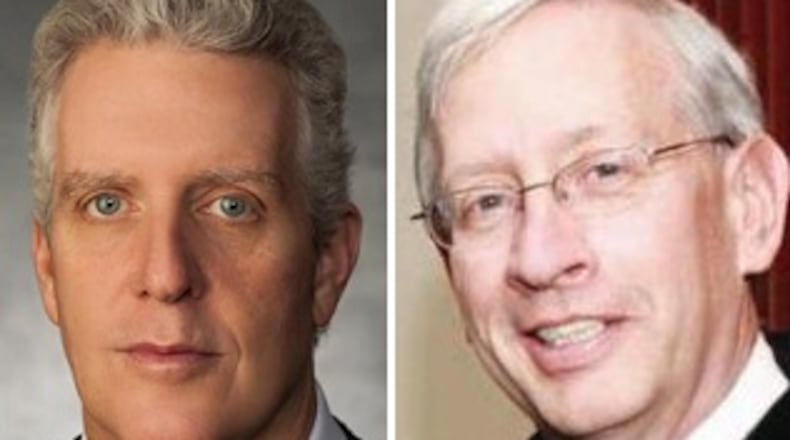Q: What do you think the 2 biggest challenges are facing the court and how would you deal with them?
Pat Fischer: 1. The courts must be more efficient in resolving disputes. In the modern world time has become more valuable. Parties cannot "move on" with their lives and business while many cases are pending. We must speed up the judicial process but without sacrificing the highest of quality. As a new appellate judge I proposed changes which cut down the time to get an opinion published by almost 50% in my cases. If elected I hope to study our current processes more in-depth and eliminate excess time in the system. The citizens of Ohio deserve a court of the highest quality and efficiency, and I want to provide that. 2. Bringing all the courts of Ohio more up-to-date technology. The Ohio Supreme Court has good technology but the lower courts do not, some still use DOS operating systems. Some courts do not provide the public with access to all pleadings on-line. We in Ohio have work to do on that issue too, so that all Ohioans can follow all cases throughout the entire state.
John P. O'Donnell: The first challenge is a perennial one: using the limited resource of the court's discretionary jurisdiction to decide only those questions of law that are of the greatest interest and import to the lives of all Ohioans. The second challenge will be the presence in the deliberation room of four new justices between the start of 2017 and the start of 2019 due to the mandatory retirement of four long-serving justices.
—-
Q: Republicans control all five executive branch offices and hold firm majorities in the Legislative and Judicial branches. In light of this, how would you work to remove partisan politics from the issues and cases that come before the court?
Pat Fischer: I am known for my fairness and impartiality. I decide each and every case on its own merits. Plus I am independent as I am supported by persons from both major parties. Finally I have a reputation for integrity as a former President of the Ohio and Cincinnati Bar Associations. Hence partisanship never enters the court from the start. This is why I received the rating of "Highly Recommended" from the Ohio State Bar Association, as well as the only candidate in my race who was rated "Excellent" by all bar associations in Cuyahoga County who evaluated both my opponent and me.
John P. O'Donnell: I will never decide a case based upon its political implications. Instead, I will abide by my oath to administer justice without respect to persons and to support the federal and state constitutions. But single party rule increases the likelihood that the political branches of government will overstep constitutional bounds, so it is important that a politically diverse Ohio Supreme Court is there to preserve our system of checks and balances.
—-
Q: Should lawyers be allowed to provide legal counsel to businesses and individuals in the medical marijuana industry? If so, why and how? If not, please describe why you oppose this.
Pat Fischer: After the Ohio Supreme Court issues new rules, the response is yes. Lawyers need to be able to help people with legal questions and new statutes are some of the most difficult for people to understand. It is imperative the rules be slightly modified to deal with this unique situation. However, as a past Chair of a Bar Association Ethics Committee, it is important that the attorneys wait for that new guidance in any amended ethics rules.
John P. O'Donnell: There is something Dickensian about passing a law and then saying lawyers cannot advise clients about the law. Fortunately, that is not the case with Ohio's new medical marijuana law. Lawyers should be, and are, allowed to provide legal advice to those involved in the medical marijuana industry permitted by Ohio's new statute. The Ohio Supreme Court's Board of Professional Conduct has opined that a "lawyer may provide advice as to the legality and consequences of a client's proposed conduct under state and federal [marijuana] law and explain the validity, scope, meaning, and application of the law." But because some of the activity that is legal under Ohio law is illegal under federal law, the board has also said that a lawyer may not advise a client to engage in conduct that is legal under state law but illegal under federal law. The fine line drawn here between acceptable and unethical attorney conduct is likely to be eliminated by a proposed rule change that would explicitly permit a lawyer to counsel a client about the new medical marijuana law, Sub. H.B. 523.
About the Author
